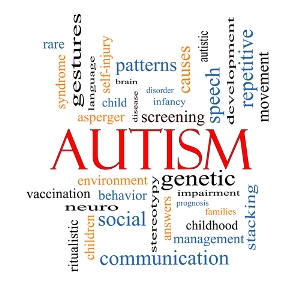MN ICI (UCEDD/LEND) Working to Benefit People with Autism Across the Lifespan
March 13, 2013

|
Autism spectrum disorders (ASD) are among the fastest-growing developmental disability diagnoses in the United States. "The increase in the prevalence of children, youth, and adults with ASD diagnoses is evident across the service systems in Minnesota and nationally," observes Amy Hewitt, director of the Research and Training Center on Community Living in the Institute on Community Integration (ICI) at the University of Minnesota.
In recent years, ICI's focus on services and supports specifically for individuals with ASD has grown, and today ICI is working to improve the capacity of schools, community services, and states to meet the needs of individuals with ASD and their families across the lifespan. Examples of some of its current research and training activities include projects in which the Institute is:
- Collaborating with the Autism Society of Minnesota; Arc Minnesota; Minnesota Departments of Health, Education, and Human Services; and others to establish a statewide network of agencies and organizations that will utilize the Centers for Disease Control's Learn the Signs Act Early message and materials to promote early identification, screening, and intervention for ASD and related neurodevelopmental disabilities.
- Partnering with leaders in the Minneapolis Somali community, and with the Minneapolis Public Schools, a number of charter schools, Minnesota Departments of Education and Health, and the University's Departments of Pediatrics and Educational Psychology, to study the higher-than-usual incidence of ASD diagnosis among children of Somali descent living in Minneapolis. The research is seeking to determine whether there are true differences in ASD prevalence between local Somali and non-Somali children.
- Working with the Minnesota Department of Human Services (DHS) to study current and possible future models of residential and coordinated supports across the human services, education, and vocational systems for children with ASD in the state. In addition, ICI is working with DHS to gather information needed for further development of early intervention autism services in Minnesota, looking at what other states are doing and the needs in Minnesota, and making recommendations for how to proceed.
- Partnering with the University's Department of Pediatrics in coordinating the Minnesota Leadership Education in Neurodevelopmental and Related Disabilities (LEND) program. Twelve academic disciplines within the University collaborate in LEND to create a unique and powerful interdisciplinary learning experience that prepares University students and community trainees to be leaders in services to children with ASD and related disabilities, and to their families, in health care, education, human services, and policy settings.
"Children and their families need support and services, yet our communities currently do not have the capacity or available funding to meet this demand," says Amy. "We hope the research, training and development work of ICI will help us better understand these needs, but more importantly will give us insight into what must happen to improve systems capacity and ultimately to improve lives."







